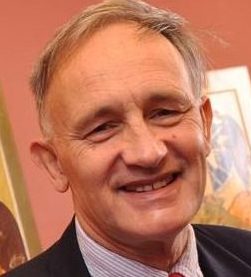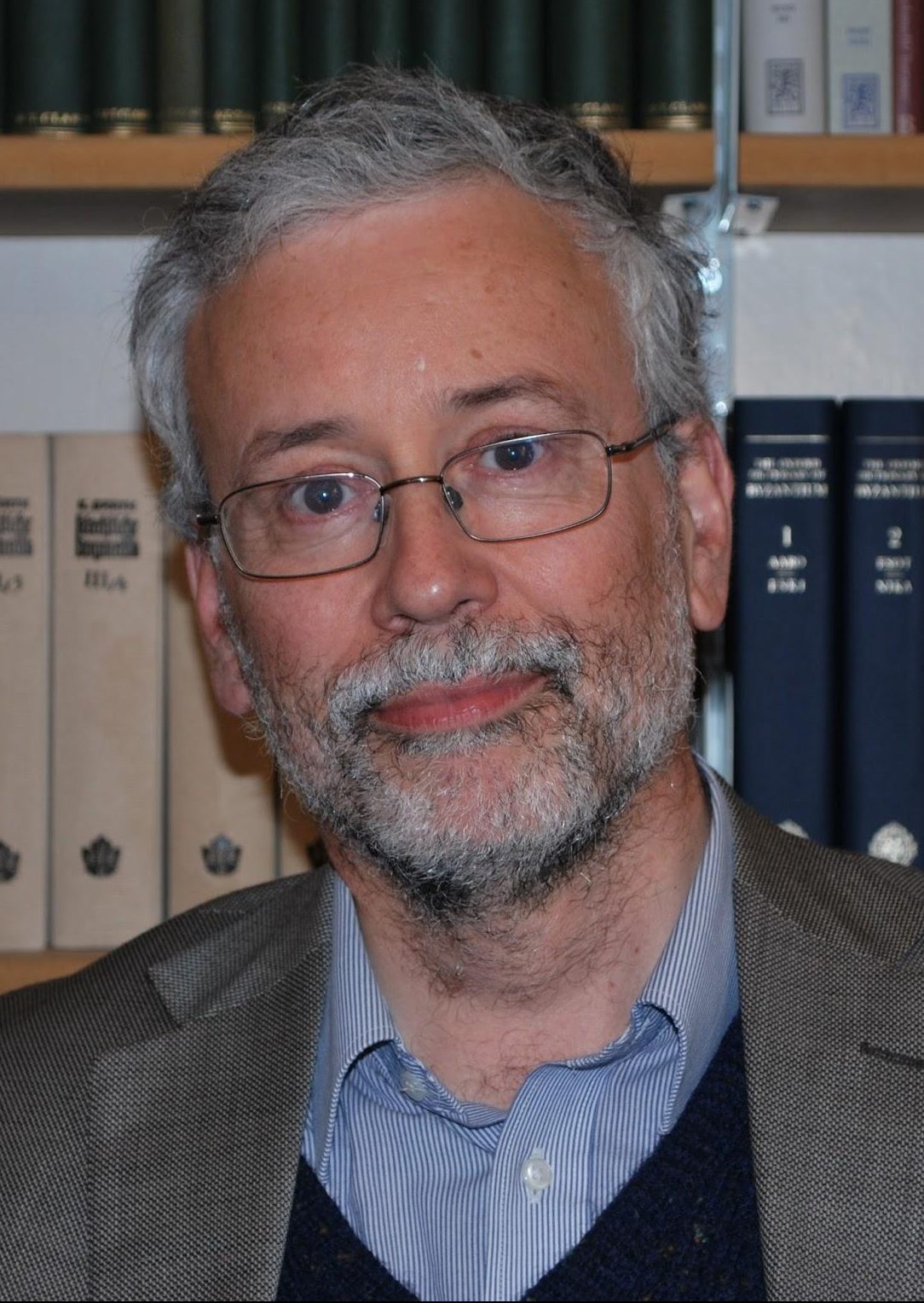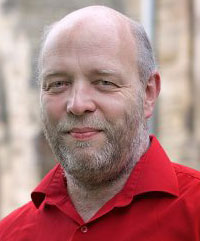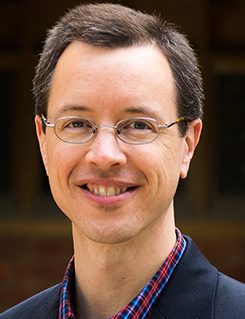Closing the Gap: a very worthwhile conference in Durham (2)
This is the second of three posts about this conference in Durham; the first is here.
Prof. David Ford (University of Cambridge) gave us a swashbuckling paper, delivered with enthusiasm and panache, coming out of his own work over some years on a commentary on John’s Gospel. This was fascinating, for Ford is a theological scholar, rather than a biblical scholar (although it was pretty clear he’s no mean exegete!). He discussed a number of influences on his reading of John: from his past as a classicist, Greek tragedy (notably Sophocles) in conversation with Donald Mackinnon, Thucydides in conversation with Paul Ricoeur, Socrates with Plato; and subsequently the Septuagint, and the synoptic Gospels and Paul. He wonderfully asserted that John’s prologue shows that ‘the only adequate horizon within which to understand Jesus is nothing less than God and all reality’. This claim places nothing whatsoever outside the domain of theological interpretation, of course.
Ford also spoke with great warmth of his collaboration with Prof. Frances Young in working on the book Meaning and Truth in 2 Corinthians, and what he had learned from working with Young, a biblical scholar, on this project. He also spoke of a series of meetings he had in Cambridge with Richard Hays and Richard Bauckham reading through the whole of the Fourth Gospel together a chapter at a time—I’d have loved to be a fly on the wall for those! These experiences convinced him of the value of reading in community, both among academics, but also in communities of worship, preaching and prayer, service, and with those from other religious traditions—Ford is one of the key people in the development of Scriptural Reasoning, in which Christians, Jews and Muslims read their sacred texs in conversation with each other. He argued that the recovery of John from its anti-Jewish uses in the church’s history requires reading John with Jewish people.
Ford’s major contribution, in my estimate, was to commend the work of Hans Frei—a name which recurred in a number of papers. Frei’s The Identity of Jesus Christ is a book which Ford regards as the most important theological book of the twentieth century, and he particularly commended the 2013 edition which has a clear introduction by Mike Higton, whom Ford regards as the leading living interpreter of Frei. Central to Frei’s consideration in relation to the synoptic Gospels is where there is historical bedrock (i.e. events which happened in space and time), and Frei finds it in the resurrection of Jesus. Ford went on to point to ways in which John is particularly concerned with the life of discipleship beyond Jesus’ death and resurrection, and particuarly claimed that the work of the Spirit as portrayed in John is to empower, enable and equip disciples to live faithfully.
Prof. Francis Watson (Durham University) responded with an interesting discussion of how Schleiermacher understood biblical interpretation, distinguishing ‘grammatical’ issues (which focus on reading and re-reading the texts with care, assisted by the best aids available to use—lexica, grammars, and the like) from ‘divinatory interpretation’, where readers engage with the innermost logic of the text, to see the world it constructs and embodies and which (in the case of John) it invites readers to inhabit. Watson said he held a ‘minimalist’ view of theological interpretation, namely that it is no more and no less than divinatory interpretation of a theological text.
Dr Richard Briggs (Cranmer Hall, Durham) closed the first day with a fascinating discussion of ‘the quest of the historical Daniel’. Like Ford, he declared himself influenced by Frei, particularly Frei’s work on the history of interpretation. He argued that exegesis is both art and science, and that, in common with other forms of human study and endeavour, there is a necessary interplay between, on one hand, who the exegete is and the context they are in, and on the other, the kind of exegesis they produce. He seemed to be suggesting that ‘science’ dimension might be identified (roughly) with historical criticism, and the ‘art’ dimension more with theological interpretation, which is more creative and less ‘technical’ (in a narrow sense of that term).
Briggs gave us the label ‘ascriptive realism’ for what he attempts to do. This combines a concern for reality as it is construed by the author, with a desire to see what the author ascribes to reality thus construed—the truth-claims the author makes about reality, history, God, the universe and everything (I thus riff on David Ford’s earlier point). The biblical authors thus are not simply describing reality, but creating a way of seeing reality in the light of God as made known in Israel, in Jesus Christ, and in his people.
Briggs’ test case was the long-standing debate over interpreting the prophecy of Daniel, where some have sought to defend the historicity of Daniel’s portrayal of key world rulers and history, and others have rejected any such claim. He sketched the (well known) data, that Darius the Mede (Dan 5:31) is likely to be Darius I of Persia, but that the dates we have attested from the Nabonidus Chronicle simply do not fit with the assertion that Darius took office on the night of Belshazzar’s death. Here Briggs noted Frei’s ‘eclipse of biblical narrative’ claim fits well, for reading Daniel was (and is) often reduced to asking only referential questions.
By contrast, Briggs sought the ascriptive reality which Daniel portrays and embodies. He suggested, provocatively, that Daniel is deliberately proferring misinformation (perhaps disinformation) about the dates and names because he has other purposes. Rather than seeking to convey accurate historical information, Daniel exhibits features which chime with postcolonial studies which read texts from the margins of an empire and its power. He cited Daniel Smith-Christopher’s Daniel commentary in the New Interpreter’s Bible as a good example of doing this kind of reading well. He outlined further readings using such an approach, notably the different ones of David Valeta and Alexandra Frisch (as OT scholars), and George Sumner (seeking to read Daniel in the light of Christ). Briggs did not seek to adjudicate between these approaches, but simply noted that considering such readings may well be more helpful than approaching a text like Daniel than earlier ‘historicist’ approaches (my term, not Briggs’).
In closing, Briggs observed that it is very hard indeed to explain why Daniel might offer mis/disinformation in the way he appears to do, but that the observations he had made would offer ways to recontextualise Daniel into other situations of empire and marginalisation.
Dr Darren Sarisky (University of Oxford) noted two points in response. First, he raised a formal question, as to how ascriptive realism works, noting that it necessarily engages readers in recognising what ‘take’ on events an author is offering. He observed that this entails allowing Scripture to speak on its own terms, rather than squeezing it into a ‘modernist’ mould. Secondly, he discussed the material claim which Briggs made about Daniel, noticing that Briggs offered no simple statement about the kind of text Daniel is. Sarisky went on to raise the question how far postcolonialism is helpful because of the Marxist and secular presuppositions involved in the method as original constructed. Briggs responded to the latter point that he was not seeking to use postcolonialism as a totalising method, but wanting to recognise that at the point of the mis/disinformation over dates and name, postcolonialism provides a valuable tool with which to read.
More to come in the third and final post, here…





One thought on “Closing the Gap: a very worthwhile conference in Durham (2)”